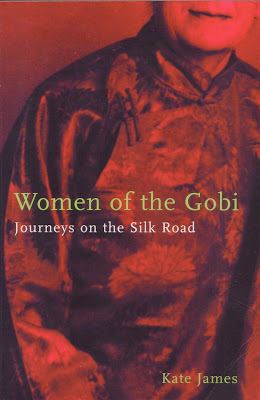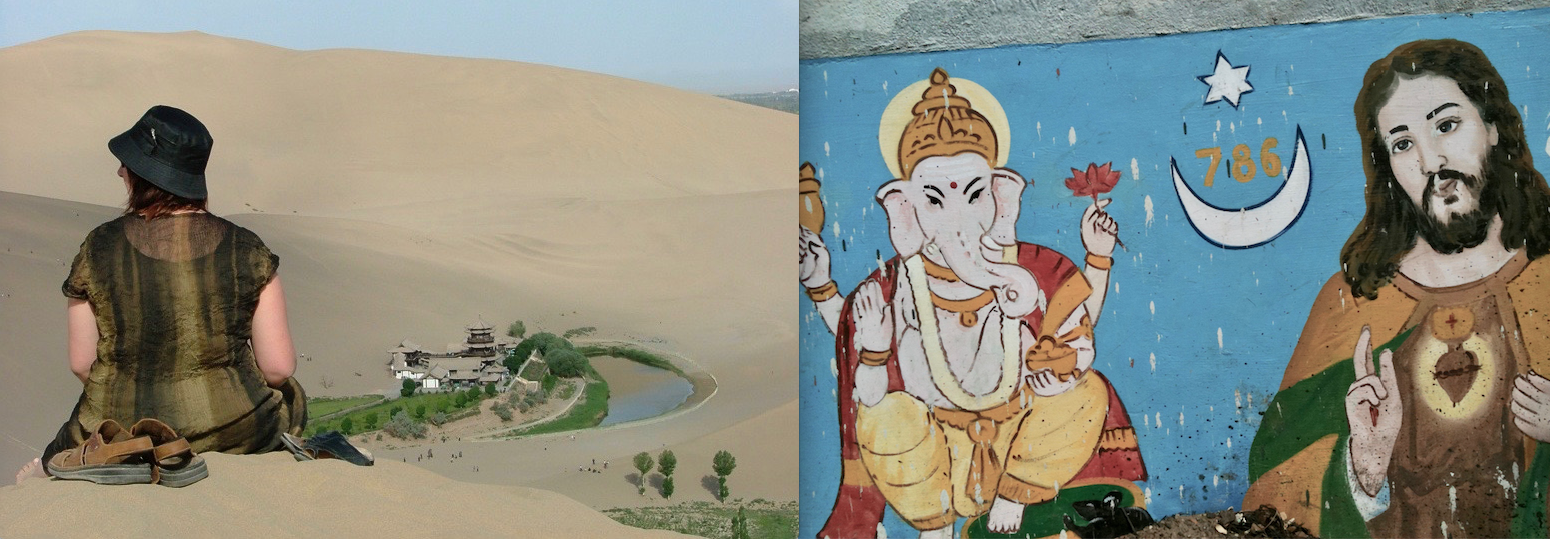
Pluto Press, 2006
Armed with a copy of Monkey and a Mandarin phrasebook and with a craving for skewered lamb, Australian writer Kate James travelled across the deserts of northwest China in the footsteps of three early-20th-century Christian missionary women and their adopted daughter.
Kate had became drawn to the writings of three extraordinary women, Mildred Cable and the sisters Eva and Francesca French, who spent most of their lives in China, adopted a deaf Mongolian daughter called Topsy and braved sandstorms and warlords to cross the barren Gobi desert on a Bible-laden donkey cart five times between 1923 and 1936.
Tired of aimless travel and the backpacker scene, Kate decided to follow the Trio through the sands, from their girls school in central China along the Silk Road into Central Asia, the monasteries of Tibet and into China’s Muslim provinces.
Along the way she met a young Living Buddha who liked to draw cars, ate yak hot-pot, was groped by a monk, went briefly mad with altitude sickness, breathed in too much second-hand cigarette smoke and watched China knocking down its historic neighbourhoods and brushing up on its English skills in preparation for the Olympic Games.
Throughout the journey the lapsed evangelical was surprised at how much she drew inspiration from the three women missionaries of last century. She also discovered something amazing in following their footsteps: religion was now thriving in China. Their legacy was alive in spite of nearly sixty years of communism. Like socialism, it had taken on Chinese characteristics.
Women of the Gobi is out of print; contact This email address is being protected from spambots. You need JavaScript enabled to view it. if you'd like a pdf or a print copy.

